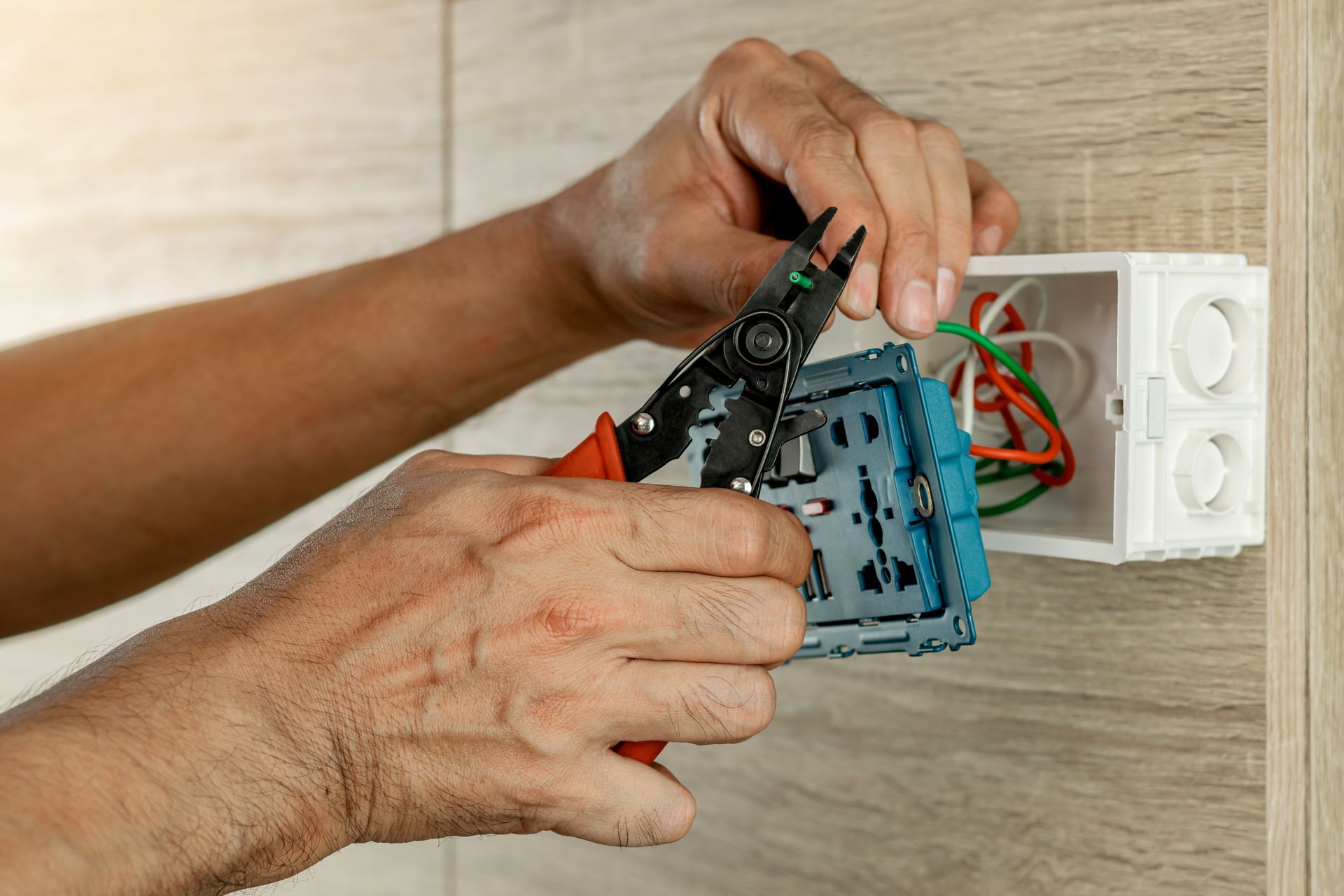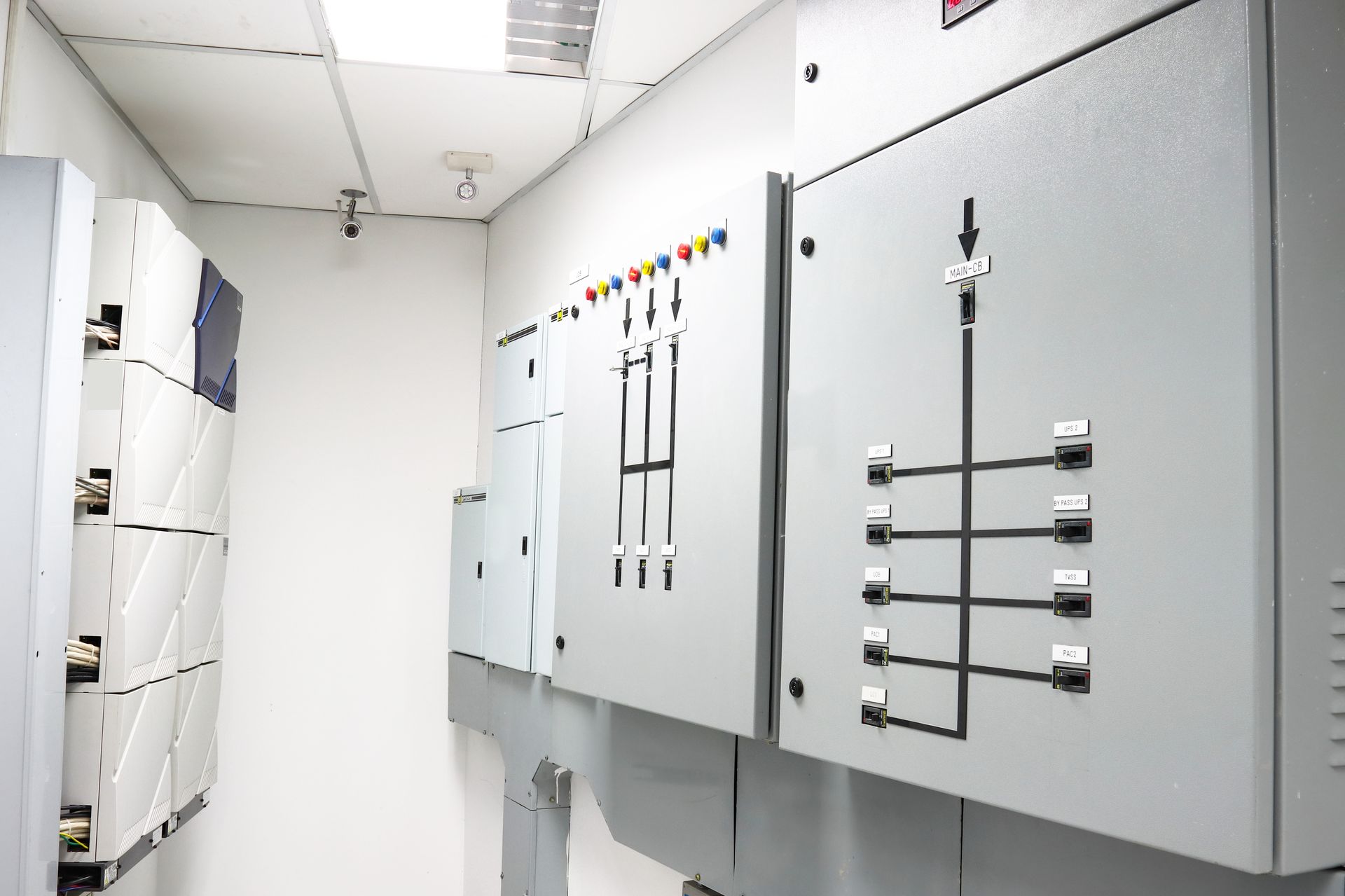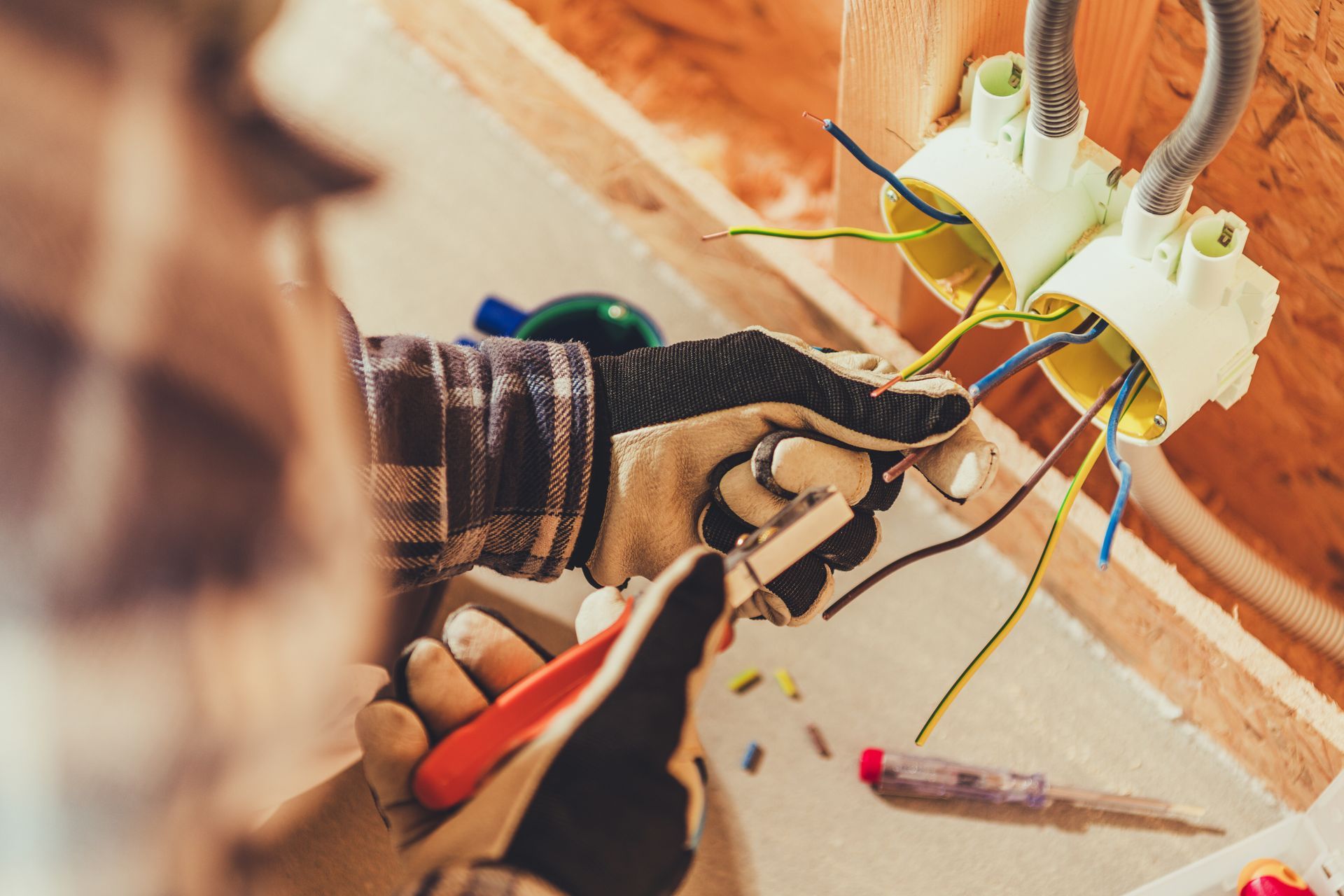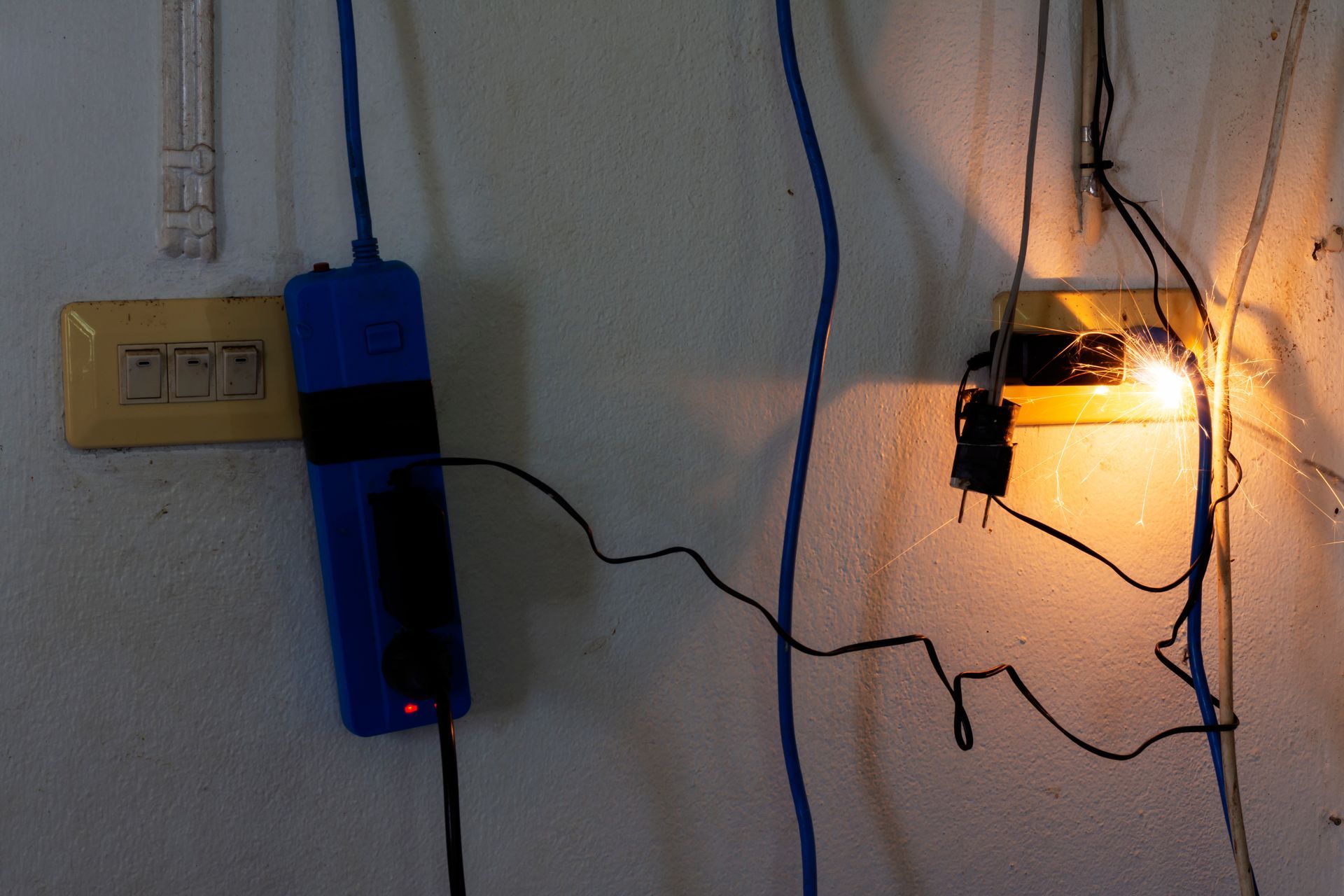We provide discounts to Veteran and Senior
Licensed and Insured | LIC#23508-A | LIC#55836-B
Is Your Service Panel Capable of Handling Your Home's Needs?
In today’s modern homes, the electricity demand is higher than ever before. With the rise of energy-intensive appliances, smart home technologies, and the increasing use of electronic devices, your electrical service panel—the heart of your home's electrical system—plays a critical role in ensuring that everything runs smoothly. But is your service panel capable of handling your home's current and future needs? Let’s dive into what you need to know to keep your home safe and efficiently powered
Understanding Your Electrical Service Panel
Your electrical service panel, often referred to as a breaker box or fuse box, is the central hub for electricity in your home. It receives power from the utility company and distributes it to different circuits throughout your house. Each circuit is protected by a circuit breaker (or fuse in older panels), which automatically shuts off electricity to that circuit if an overload occurs.
The capacity of your service panel is measured in amps, with standard panels typically ranging from 100 to 200 amps. The amperage rating indicates the maximum amount of electrical current your panel can handle. The higher the amperage, the more circuits and appliances your panel can safely support.
Signs Your Service Panel May Be Overloaded
A service panel that is overloaded or outdated can pose serious risks, including electrical fires and power outages. Here are some signs that your service panel may not be keeping up with your home's electrical demands:
- Frequent Circuit Breaker Trips: If your circuit breakers are constantly tripping, it's a clear indication that your panel is struggling to handle the electrical load. This can be especially concerning if it happens when using common appliances like a microwave or hairdryer.
- Flickering or Dimming Lights: If your lights flicker or dim when you turn on other appliances, this could signal that your panel is overloaded and can't supply consistent power across circuits.
- Burning Smells or Warmth Near the Panel: Any unusual smells or warmth near your service panel should be addressed immediately. These are signs of overheating, which can lead to electrical fires.
- Old or Outdated Panel: If your home still uses a fuse box or a panel with a lower amperage rating (e.g., 60 amps), it’s likely not sufficient for modern electrical needs. Upgrading to a newer panel with a higher capacity may be necessary.
- Limited Outlets and Use of Extension Cords: If you find yourself relying heavily on extension cords or power strips because your home doesn’t have enough outlets, your electrical system may be outdated and unable to support your needs.
Upgrading Your Service Panel: When and Why?
If you’ve noticed any of the signs above, it may be time to consider upgrading your service panel. But when exactly should you make the upgrade, and what are the benefits?
- When You're Renovating or Expanding: If you're planning a home renovation, adding an addition, or converting space into a living area (like a basement or attic), you may need more power than your current panel can provide. Upgrading ensures that you can safely support new lighting, outlets, and appliances.
- When Installing Major Appliances: Installing high-demand appliances such as an electric vehicle charger, central air conditioning, or a hot tub can significantly increase your home's electrical load. A service panel upgrade ensures that your system can handle these additions without compromising safety.
- When Your Home Is Over 25 Years Old: Older homes were built with lower electrical demands in mind. If your home is more than 25 years old, it’s likely your service panel is outdated and may not meet modern safety standards. Upgrading can improve safety, increase capacity, and potentially add value to your home.
- When You Want to Improve Energy Efficiency: Upgrading your service panel can also improve your home’s energy efficiency. A modern panel is better equipped to handle the latest energy-efficient appliances and systems, which can reduce your overall energy consumption and lower utility bills.
- When Safety Is a Concern: The most important reason to upgrade your service panel is safety. An overloaded or faulty panel is a major fire hazard. Investing in an upgrade protects your home, your family, and your peace of mind.
What to Expect During a Service Panel Upgrade
A service panel upgrade is a significant project that should always be handled by a licensed electrician, like the professionals at Tarique Wilson Electrical. Here’s what you can expect during the process:
- Initial Assessment: Your electrician will begin by assessing your current electrical system, including the existing panel, wiring, and overall capacity. They’ll determine the appropriate amperage for your new panel based on your home’s size, age, and electrical needs.
- Permits and Regulations: Electrical work typically requires permits and must meet local building codes. Your electrician will handle all the necessary paperwork and ensure that the work complies with regulations.
- Power Shutoff and Panel Replacement: On the day of the upgrade, your home’s power will be temporarily shut off while the old panel is removed and the new one is installed. This process can take several hours, depending on the complexity of the job.
- Testing and Inspection: After installation, your electrician will test the new panel and circuits to ensure everything is functioning correctly. The work will then be inspected to verify that it meets safety standards.
- Power Restoration and Final Walkthrough: Once the upgrade is complete, your electrician will restore power to your home and conduct a final walkthrough with you. They’ll explain the new panel, show you how to reset circuit breakers, and answer any questions you may have.
Benefits of a Professional Service Panel Upgrade
Upgrading your service panel offers numerous benefits beyond just increased capacity. Here’s why hiring a professional electrician for this job is a smart investment:
- Enhanced Safety: A professional electrician ensures that your service panel is installed correctly and meets all safety standards, reducing the risk of electrical fires, shocks, and other hazards.
- Increased Home Value: A modern, up-to-date electrical system can increase the resale value of your home. Prospective buyers will appreciate the safety and reliability of a newly upgraded panel.
- Long-Term Cost Savings: While a service panel upgrade is an investment, it can save you money in the long run. A more efficient electrical system can lower your energy bills, and you’ll avoid costly repairs or damage caused by an overloaded panel.
- Improved Functionality: With an upgraded service panel, you’ll be able to run multiple high-demand appliances simultaneously without worrying about tripping breakers or overloading circuits.
- Future-Proofing Your Home: A service panel upgrade prepares your home for future electrical needs. Whether you’re planning to add more technology, install energy-efficient systems, or accommodate new appliances, your upgraded panel will be ready.
When to Call Tarique Wilson Electrical for Your Electrical Needs
If you’re experiencing any issues with your current service panel or are considering a home renovation, it’s time to call in the experts. At Tarique Wilson Electrical, we specialize in service panel upgrades and can assess whether your current system meets your needs. We’re committed to providing safe, reliable, and efficient electrical services to homeowners in Worcester, MA, and the surrounding areas.
Our team of licensed electricians is dedicated to ensuring your home’s electrical system is up to code and capable of handling your power demands. Don’t wait until it’s too late—if you suspect your service panel is outdated or overloaded, contact Tarique Wilson Electrical today at
(774) 535-6973 to schedule an assessment and upgrade consultation. We also perform
electric car charger installation,
transfer switches,
commercial lighting installation, and
commercial electrical service and troubleshooting.
FAQs
How do I know if my service panel needs an upgrade?
If your home has frequent breaker trips, flickering lights, or an outdated fuse box, it's likely time for an upgrade. Other signs include the need for more outlets, installing high-demand appliances, or if your home is over 25 years old.
What is the typical cost of a service panel upgrade?
The cost of a service panel upgrade varies depending on the amperage required, the complexity of the installation, and local labor rates. On average, homeowners can expect to pay between $1,500 and $3,000.
How long does a service panel upgrade take?
The actual installation process usually takes between 4 to 8 hours, but the total project time can vary depending on the need for permits, inspections, and any additional electrical work.
Can I upgrade my service panel myself?
No, upgrading a service panel is a complex and potentially dangerous task that should always be handled by a licensed electrician. Incorrect installation may result in dangerous situations, including electrical fires.
What size service panel do I need?
The appropriate size depends on your home's electrical load, which is determined by the number of circuits, appliances, and overall usage. Most modern homes require at least a 200-amp panel, but a professional assessment is necessary to determine the exact requirements.








Quick Links
Services


